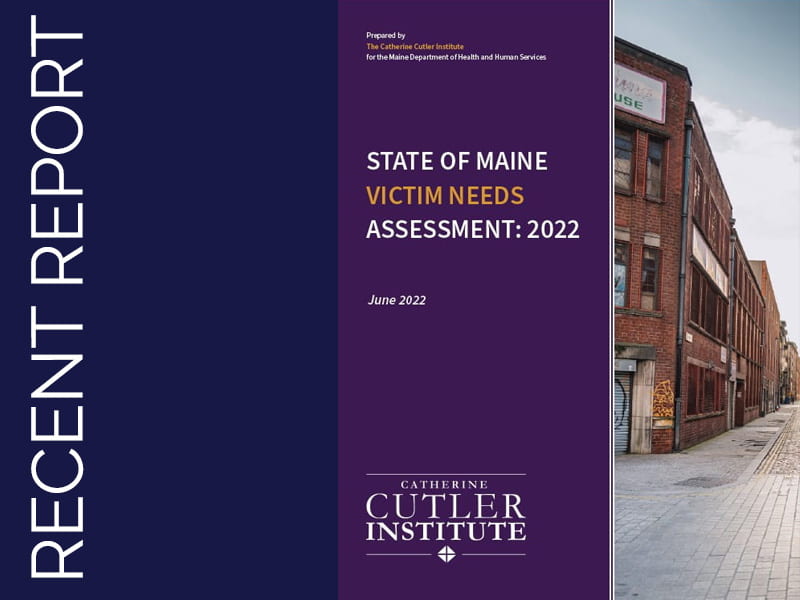The State of Maine Victim Needs Assessment (VSNA), completed by the University of Southern Maine’s Catherine Cutler Institute, documents concerns about the unmet needs of crime victims in Maine. Specifically, people of color are more likely to experience almost every type of crime and while rates for reporting crime and seeking services are higher for these victims, available services are often inaccessible due to cultural and language barriers. The 2022 VSNA found that mainstream victim service providers self-identified that they need more formal training opportunities that specifically address services and outreach strategies for meeting the needs of diverse populations, especially for individuals that have been a victim of a crime. Culturally specific organizations that are embedded in these communities provide comprehensive services yet report being underfunded and under-resourced.
The 2022 VSNA was supported by Maine’s Victims of Crime Act (VOCA) award from the U.S. Office for Victims of Crime. As a condition of VOCA funding, this assessment is conducted regularly to determine the current needs of crime victims and to recommend strategies for meeting those needs in accordance with VOCA requirements. The assessment found that, while Maine’s victim service providers have achieved notable successes with VOCA funds, victim service providers are open to changing established processes and collaborating more consistently in order to offer more integrated service delivery to victims of crime.
The 2022 VSNA issues several recommendations for state agencies, coalitions, and councils that oversee and collaborate around federal, state, and local funding sources that address the needs of Maine crime victims. These recommendations include redesigning the VOCA funding allocation process to ensure the distribution of funds to victim service organizations commensurate with the changing needs of victims receiving services from those organizations and prioritizing VOCA funding for increased support of core victim services and for regional, population, and culturally specific programs.
Read the more detailed explanation of the MCVS’s findings.
